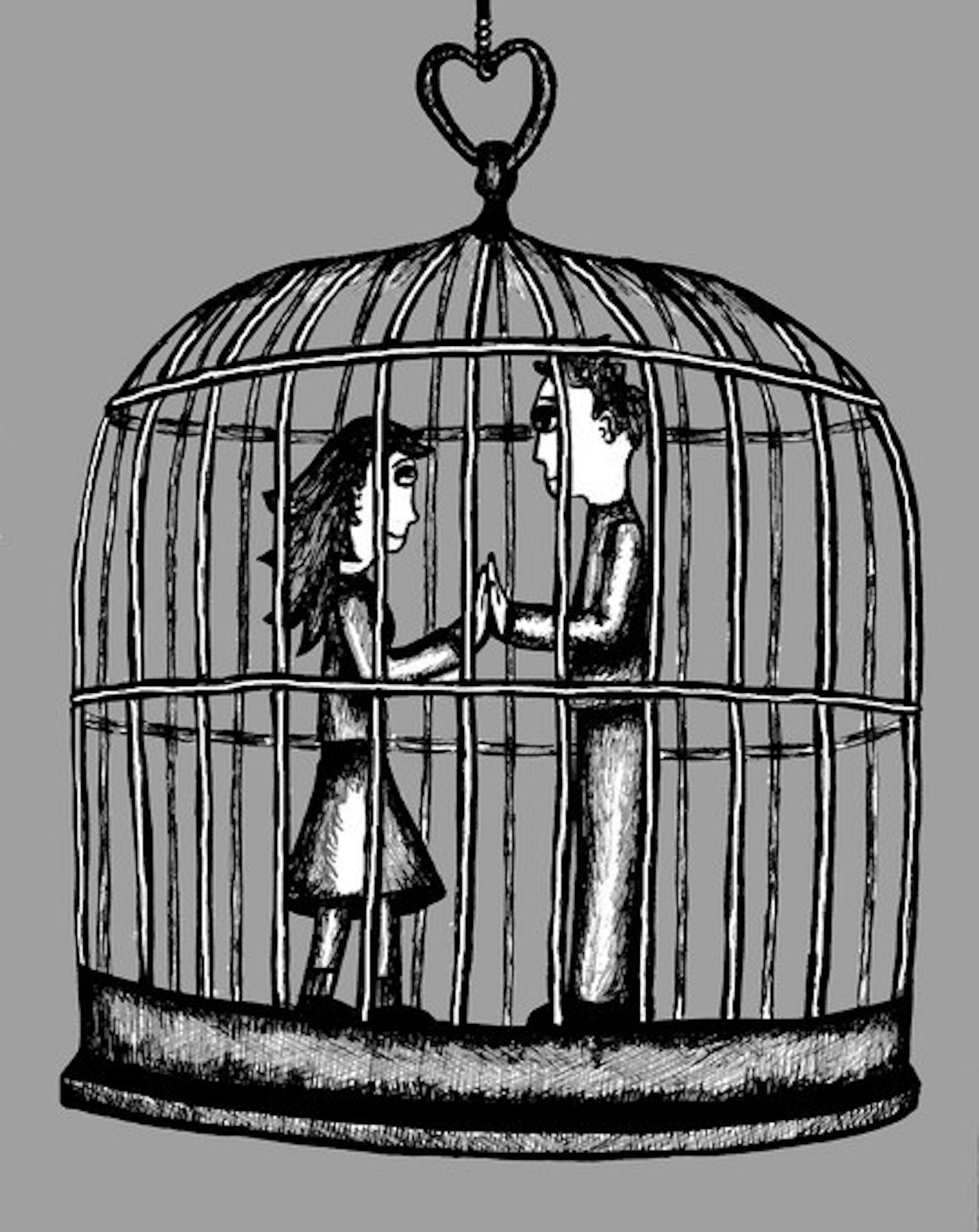The story is familiar: a friend begins "seeing" some appealing second party in a casual and restrained capacity, only to disappear down the dangerous vortex of far too much too soon. A mere week later, dinner dates have escalated into nightly sleepovers, shared toothbrushes and cross-campus co-dependence. A two-hour-long 10A is sufficient to produce separation anxiety and frantic interclass blitzing. By the third week, prenups have been drafted, obligations have been shirked, matching profile pictures have been posted and plans with friends have been cursorily canceled. For the star-crossed lovers in question, the transformation from autonomous individuals into indivisible unit is complete.
It is easy enough to let infatuation devolve into mania, especially in situations where there are no external barriers to continuous romantic interaction. In high school, parents intervened; in the post-graduate world, the distance between separate residences is usually something of a clincher. In college, however, obsession is all too often allowed to run its crazy course unchecked.
General opinion holds that this sort of impulsivity is the height of romance: popular culture lauds all-consuming relationships as passionate affairs, and the notion of "love at first sight" has a long and vaunted history in the Western literary tradition. I have no bone to pick with passion, at least in the abstract. But the sort of immediate intensity that yields constant communication and de facto cohabitation several weeks into a relationship is not cute or romantic: it is obsessive, imprudent and, most importantly, unhealthy.
Like all interpersonal interactions, romantic relationships require some measure of compromise and sacrifice. But like all interpersonal interactions, they become more of a burden than a boon the moment they begin to interfere with the goals, ambitions and pre-established lives of their constituent parties.
No matter how many rom-coms depict love as a matter of dramatic gestures and near-instant betrothals, I remain convinced that someone who really loved you would not want you to change your D-plan, blow off your friends or skip your 11 that someone who really loved you would not expect you to cede your personal identity to your significant other, and especially not so soon. The sorts of capitulations that the likes of Jane Austen represent as romantic may betoken possession, but they certainly do not betoken love. Genuine affection for another person above all entails respect for that person's interests, privacy and personal space.
This is not to say that intensity in romantic affairs is undesirable. On the contrary, it is only to say that there are healthy ways of caring intensely about another person ways that do not involve throwing caution and concern for the future to the winds. There is a time at which rearranging travel plans to accommodate someone else's schedule would not represent the epitome of poor judgment, but this time is not a paltry month into a fledging relationship; there is a time at which spending huge and contiguous chunks of time with a significant other is not ill-advised, but far down the romantic road.
The kind of love that merits life-changing decisions is premised on sustained dedication and compatibility. It is based on mutual trust, respect and admiration. If it does not require the sort of constant affirmation and sacrifice that more obsessive relationships demand, it is not because it is less passionate. Rather, lasting relationships have a foundation of trust trust that even if one party is off for a term, out of touch for a week or unwilling to skip that 11, it is not due to a dearth of love.
Although what I have just described may sound less romantic than the head-over-heels ardency that inspires jilted lovers in Marquez novels to pen unanswered love letters for 40 years, it is also more enduring. Unlike the rash relationships disparaged above, it will not wear off when the novelty does.




